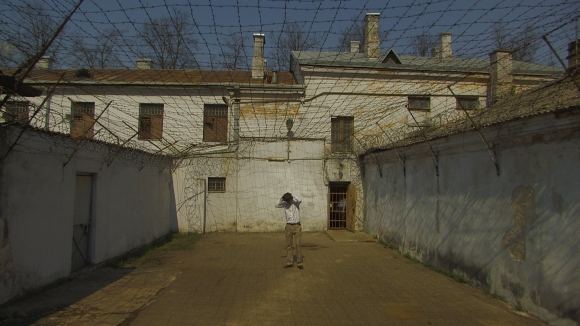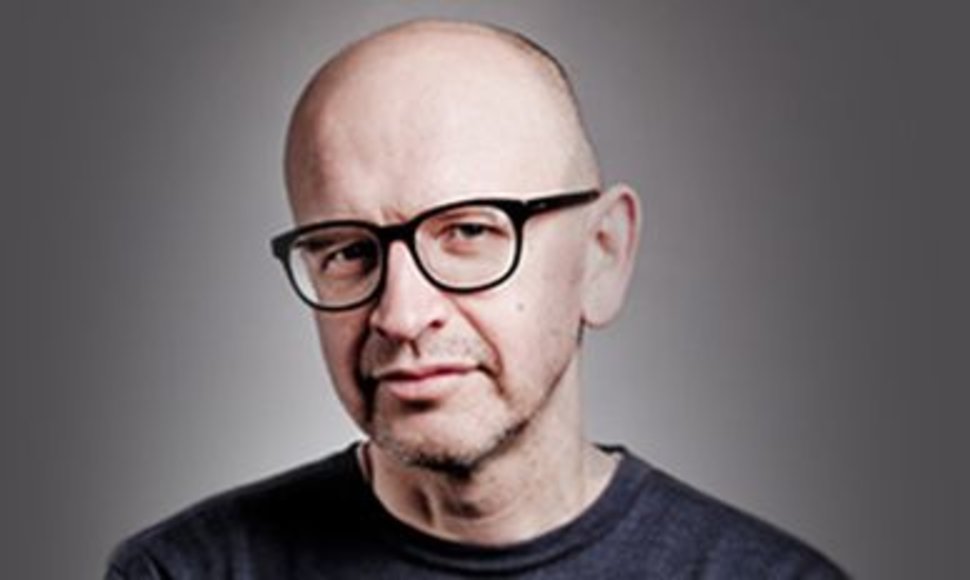The narrative concerns an ambitious theatre director's assistant who is accused of being homosexual, loses his job and finds himself at the mercy of the Soviet KGB system that leaves no space for even a theoretical chance to acquit oneself.
The following is an extract from Narkevičius' interview for TheUpcoming.co.uk
- How did you get interested in the subject of homosexuality?
- The film was initially created for You Are Not Alone exhibition in Barcelona, which was privately financed by Han Nefkens, founder of ArtAids – the organization that supports art projects aimed at preventing and fighting AIDS. Han himself is gay, he got infected with AIDS back in the days when there was no cure for it, and he survived. I was very moved by his persona – his body is damaged by illness, yet he’s full of inner beauty. He inspired my interest in a subject that I did not know a thing about – homosexuality. The fact that I was completely unfamiliar with it was also a challenge, so I took it up.
- How did you research the topic?
- I got all my information from the Lithuanian Gay League. However, there is a big social gap between the present gay culture and homosexuals of the older generation – those two groups barely converge. I was more interested in homosexuals who are now in their 60s, since the film is set in the period of their youth, period when homosexuality was criminalised. But those people are very hard to find – they lead their lives in secret and are afraid of any sort of publicity.
- Did you manage to find or speak to any of them?
- No. And that’s because homosexuality is currently being turned into exoticism and sensation in Lithuania – it became a media attraction, drawing attention from real day-to-day lives and needs of those people. Homosexuals themselves are hurt about it – unwanted exposure makes it hard for them to retain their multi-dimensional identity in public sphere. They do not like the overwhelming amount of attention the scandalised topic receives, so they shy away from the public even more, continuing to live under a veil of secrecy. There was a first gay parade organized in Lithuania last year, and although the controversy surrounding it was huge – there was more police than actual participants, and it all turned into a sort of menagerie in the end, pretty ugly.
You know, even in Brussels – which is a city where the homosexual topic is not even questioned anymore, one of the most open-minded cities in Europe regarding gay matters – my friend told me he can’t walk holding a hand of his lover even there. So we shouldn’t want more than there is.
Wishes and aspirations are one thing, and demands is another – especially of something which even in more evolved societies isn’t the norm. Yet I hope my film serves to change that.
- Maybe you remember the prevalent attitude to gay people in the 1970s Lithuania?
- There was an official clause, clause 122 in the Soviet Penal Code sentencing you to 3 years of jail even if there was as little as mere suspicion that you might be gay, so homosexuals were continuously facing terror and threat to be found out. Accusation of being gay – even if one weren’t! – meant that one instantly fell to the bottom of society. I have been to the army myself, and it is certainly not an easy place to survive in. Probably the reminiscence of this oppressive structure is what keeps older generation gays from coming out of the closet. Women’ s homosexuality on the other hand was not criminalised – it was something they were cured from.
- So there wasn’t even a secret community of soviet gays?
- I think they must know each other, sure, but let’s not forget those people are now in their 60s – they do not go clubbing anymore. They spent their whole lives hiding their sexuality, even had to create fictive families with children.
- And about the film itself, why did you choose such an unconventional length for Restricted Sensations – just over 40 minutes?
- I did not have the resources, primarily financial ones, for a full feature. Also the story was naturally written to take up this time span – length is never the primary focus in my work, it happens naturally.
Continue reading at theupcoming.co.uk
 |
| A shot from the film |












